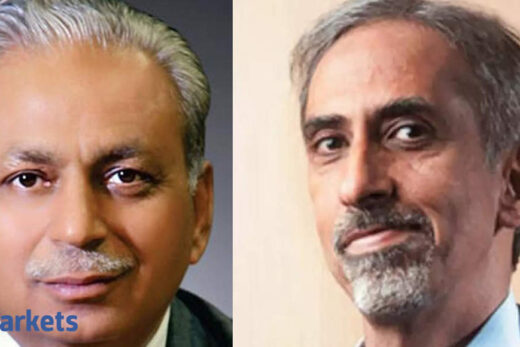double the valuation ascribed to the seven-year-old venture a few months ago. If the deal fructifies, Swiggy will rank among India’s most valued privately owned startups after edtech firm Byju’s and fintech major Paytm, which is
slated to go public later this year.
The latest financing for Swiggy comes close on the heels of its arch-rival
Zomato’s bumper IPO and is being seen as a re-rating exercise for the Bengaluru firm that is presently valued at $5.5 billion.
Invesco is likely to plough in about $150-200 million, while existing investors in Swiggy like Falcon Edge, SoftBank Vision Fund, Prosus (formerly Naspers) will pump in the rest of the capital, according to the people cited above.
May Explore Public Listing
Recently,
Invesco led a $100 million fundraise in IPO-bound PineLabs, an enterprise-focussed payments platform.
Invesco’s interest is a signal that Swiggy could be exploring a public listing in the next few years, according to sources, who said that the fund is scouting for opportunities in the fast-growing technology sector in India.
Other crossover funds (which invest in public and private markets) like Fidelity, T Rowe Price, Ballie Gifford, among others, have been betting on large Indian internet startups and more so in the past year, as a slew of local ventures are lining up to tap the capital markets.
“As a direct competitor to
and being neck-and-neck in terms of market share, Swiggy is looking undervalued,” said another source who did not want to be identified.
Zomato’s scrip ended at Rs 143.55, up about 5% on Monday at BSE, with a market cap of around $15.16 billion (Rs 1.12 lakh crore).
Invesco, which is a significant shareholder in Zee Entertainment Enterprises Ltd, has also been in the news in recent days for
seeking the exit of Zee’s chief executive and managing director Punit Goenka as well as some independent directors from the board of the beleaguered media group, in a rare act of shareholder activism in the country.
The Zee group
struck a merger deal with Sony Pictures Networks India last week.
Emailed queries sent to Swiggy CEO Sriharsha Majety and an Invesco spokesperson did not elicit a response till press time Monday.
Last month, SoftBank founder Masayoshi Son said in a post-earnings presentation that a listing by its portfolio company
Swiggy can also deliver “good returns”. SoftBank Vision Fund had
led a $450 million round in the Bengaluru-based company in July, as part of an overall $1.25 billion funding round. In his presentation, Son said that Swiggy was clocking 1.5 million orders a day and that it had around 20 million monthly active users. Describing the company as a “convenience delivery platform,” he said, Swiggy’s revenue grew 2.8 times between June 2020 and June 2021 while daily orders increased 2.5 times. He did not provide absolute numbers on Swiggy’s revenue.
 ETtech
ETtechIn an
interview with ET in July, Swiggy’s Majety said that as much as 25% of the company’s revenue was coming from non-food delivery businesses, which he sees growing further in the next five years. Majety said that Swiggy planned to use the $1.25 billion in new funding to invest heavily in non-food verticals such as hyperlocal grocery and essentials delivery service Instamart.
Swiggy Instamart has expanded to 11 cities including Delhi-NCR, Hyderabad, Chennai, Mumbai, in addition to Bangalore. It also runs a separate
subscription-based platform SuprDaily, acquired in 2018, for morning delivery of essentials like milk, breads and other grocery items.
The company plans to leverage its existing customer base in the food delivery segment for its other delivery businesses like Instamart and SuprDaily in its bid to become a last mile convenience and logistics player in categories beyond food delivery. Swiggy also runs a pick up and delivery service under Genie which competes with the likes of Dunzo.
On the food-delivery front, both Swiggy and Zomato have been on an aggressive discounting spree to expand market shares on the back of increased adoption due to the Covid-19 pandemic. “We are going to go aggressive not just on discounting…but also on our own investments in non-food and food. That was the plan and that will be the plan,” Majety had
told ET in the July interview.
 ETtech
ETtechThe big fundraise by Swiggy and Zomato’s IPO, along with expansion into grocery and on-demand deliveries by the food-delivery players, come amid a
backlash from delivery partners who have taken to microblogging platform Twitter.
They have alleged exploitative treatment by Zomato and Swiggy including reduced pay, a lack of compensation for skyrocketing petrol prices, absence of first-mile pay, lack of long-distance return bonus, and daily earning caps. Earlier this month, The Indian Federation of App-based Transport workers (IFAT) filed a public interest litigation (PIL) in the Supreme Court seeking to “hold app-based companies accountable” — including Swiggy and Zomato — for the “lives and livelihood” of drivers and delivery workers affected by the Covid-19 pandemic. According to the petition, the ‘Right to Social Security’ is a guaranteed fundamental right for all working people, regardless of whether they are employed in the formal or informal sector.



